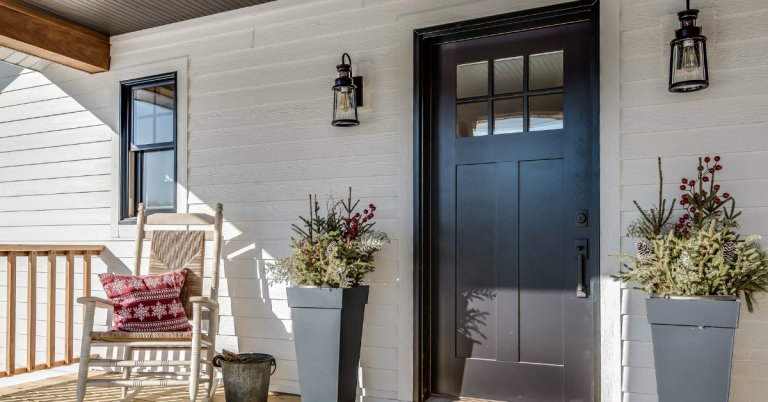Planning Ahead: A Timeline for Each Phase of the Home Moving Stage

Moving homes can feel like a daunting task, but with the right plan, it doesn’t have to be. Whether you’re relocating across town or to a new state, having a well-organized home-moving timeline is crucial for making the process smooth and stress-free.
This guide will walk you through each home moving stage. We’ll offer practical tips and tricks to ensure nothing is left to chance.
Let’s begin!
Table of Contents
Set a Moving Date
Between 8-12 weeks before the move, set a firm moving date. This will give you plenty of time to plan and prepare for the big day. Consider factors such as work schedules, school calendars, and any major events that could impact your move.
When setting a moving date, it’s also important to consider the weather. If you’re moving during a harsh winter or in the peak of summer, make sure you have appropriate measures in place to protect your belongings from extreme temperatures.
Create a Moving Budget
Between 8-12 weeks before the move, create a budget for your move. This should include all expenses such as hiring movers, purchasing packing supplies, and any temporary storage costs.
Be sure to also factor in any potential unexpected expenses that may arise during the moving process. Having a solid budget in place will help you stay on track and avoid overspending. Your budget may also help you determine whether you can afford to hire professional movers or if a DIY move is more realistic.
Research Moving Companies
Between 8-12 weeks before the move, start researching moving companies. Get quotes from at least three different companies like Mordue Moving and compare their services and prices.
Take the time to read reviews and ask for recommendations from friends and family. It’s important to choose a reputable moving company that you can trust with your belongings.
A few tips when choosing a moving company:
- check for proper licensing and insurance.
- ask about their experience and track record.
- inquire about the services they offer
Moreover, don’t forget to ask about any additional fees or charges that may apply. Once you’ve chosen a moving company, make sure to schedule them for your moving date.
Notify the Landlord or Cancel the Lease
Between 8-12 weeks before the move, notify your landlord if you are renting and intend to move out. If you own your home, start the process of selling or renting it out.
If you’re currently in a lease agreement, review the terms and conditions for ending it early. Be prepared to potentially pay an early termination fee.
Moreover, make sure to notify utility companies, internet and cable providers, and any other service providers of your move-out date. Arrange for final bills to be paid and for services to be disconnected on your moving day.
Declutter and Organize
Between 6-8 weeks before the move, start decluttering and organizing your belongings. Go through each room and decide what to keep, donate, sell, or throw away.
This is also a good time to start packing non-essential items. Label boxes clearly and consider using color-coded labels for different rooms in your new home.
Moreover, create a detailed inventory list of all your belongings. This will not only help you keep track of everything during the move, but it can also come in handy for insurance purposes.
Start Packing Non-Essentials
Between 6-8 weeks before the move, start packing non-essential items such as out-of-season clothing, holiday decorations, and knick-knacks. Make sure to pack fragile items carefully and label boxes.
It’s also a good idea to pack an essentials box that contains all the necessary items you’ll need for the first few days in your new home. This can include toiletries, basic kitchen utensils, and a change of clothes.
Gather Packing Supplies
Between 5-6 weeks before the move, gather all the necessary packing supplies. This can include boxes, packing tape, bubble wrap, and markers for labeling.
Consider asking friends or family if they have any spare moving boxes or check with local stores to see if they have any available for free. You can also purchase packing supplies from your chosen moving company.
Take note that packing for a move can be time-consuming, so it’s important to start early and give yourself enough time for this task.
Begin Address Changes
Between 5-6 weeks before the move, start changing your address with banks, credit card companies, and any other important organizations. Make sure to also update your address on subscriptions and magazine deliveries.
Don’t forget to also notify the post office of your change of address so that your mail can be forwarded to your new home. When changing your address, it’s also a good idea to create a mail forwarding plan for any bills or important documents that may still come to your old address.
If you want to be relocating efficiently, don’t forget to submit a change of address form to the post office. This will ensure that your mail is forwarded to your new address.
Confirm Moving Arrangements
Between 4-5 weeks before the move, confirm all arrangements with your chosen moving company. Double-check the moving date and time, as well as any additional services you may have requested.
If you’re doing a DIY move, make sure to arrange for a rental truck or trailer in advance. Also, consider asking friends or family to help on the day of the move.
If you don’t have access to a truck, you can also consider hiring a moving labor company to help with the heavy lifting and loading.
Plan for Pets and Kids
Between 3-4 weeks before the move, make arrangements for your pets and children on the day of the move. Consider hiring a pet sitter or asking a friend to watch them for the day.
If you have young children, it may be helpful to arrange for them to stay with a family member or friend during the moving process. This will not only keep them out of harm’s way but also allow you to focus on the move without any distractions.
Pack Important Documents
Between 3-4 weeks before the move, start packing important documents such as birth certificates, passports, and medical records. Keep these documents with you on the day of the move to ensure they don’t get lost or damaged.
It’s also a good idea to make copies of these documents and keep them in a safe place in case anything happens during the move. If you have any valuable items, consider packing them separately or keeping them in a safe deposit box until after the move.
Notify Friends and Family
Between 2-3 weeks before the move, notify friends and family of your new address. This will not only prevent any important mail from getting lost, but it also gives them the chance to send you a housewarming gift!
Also, consider throwing a farewell party or gathering before the move. This is a great way to say goodbye to loved ones and make some lasting memories in your old home.
Pack Kitchen and Remaining Items
Between 2-3 weeks before the move, start packing up the kitchen and any remaining items in your home. It’s a good idea to pack dishes, glasses, and other fragile items separately with plenty of padding.
If you have any large or bulky items that won’t fit in a box, consider wrapping them in blankets or bubble wrap for protection during the move. This is also a good time to disassemble any furniture that won’t fit through doorways or hallways.
Prepare an Essentials Box
Between 1-2 weeks before the move, prepare an essentials box that contains all the necessary items you’ll need for the first few days in your new home. This can include toiletries, basic kitchen utensils, and a change of clothes.
Also, make sure to pack a separate box with all the necessary tools you’ll need for reassembling furniture or fixing any minor issues in your new home. If you have any important medications, make sure to keep those with you as well.
Moving Day
On the day of the move, make sure to get an early start. Have a plan in place for loading and unloading the moving truck, and make sure to have enough help on hand.
Before leaving your current home, make sure to do a final walkthrough and check for any forgotten items. Once you arrive at your new home, start unloading and unpacking according to the plan you created earlier.
Remember to take breaks as needed and don’t try to unpack everything in one day. Moving is a process, so take it one step at a time and enjoy the excitement of starting a new chapter in your life.
Conduct a Final Walkthrough
After the movers leave, take a few minutes to do a final walkthrough of your new home. Check for any damage or issues that may have occurred during the move.
Make sure all utilities are connected and working properly. If you find any problems, be sure to document them and contact your moving company for resolution.
Read Also: Home Buying Experience: The Indispensable Role of Real Estate Agents
Each Phase of the Home Moving Stage Must Be Planned
Moving can be a stressful and overwhelming process, but with careful planning and organization, it can also be an exciting and rewarding experience. By following the tips outlined in this guide, you can ensure a smooth and successful home move.
Each phase of the home moving stage must be carefully planned to have a successful transition into your new home. By taking these steps, you can ease some of the stress and make your move a positive and memorable experience.
Should you wish to explore other topics, head to our blog page. We’ve got more!






